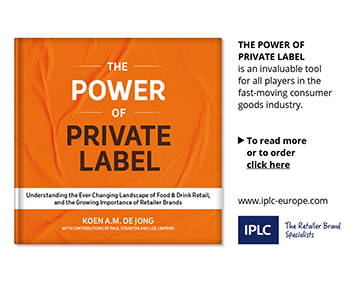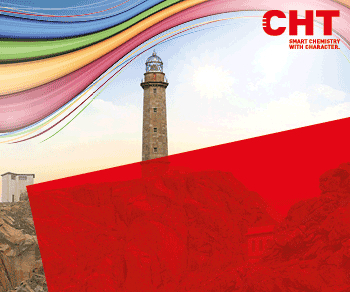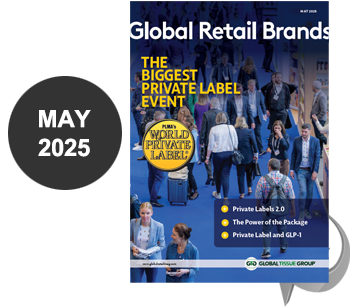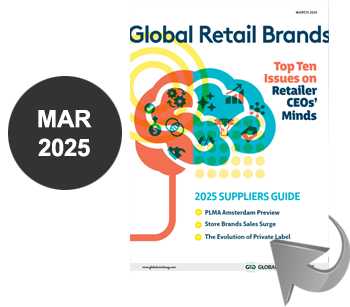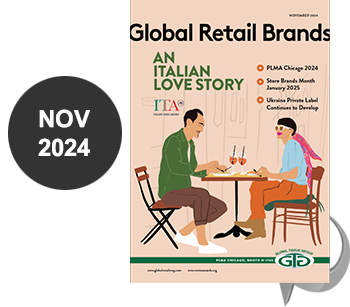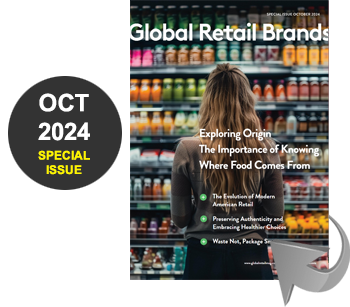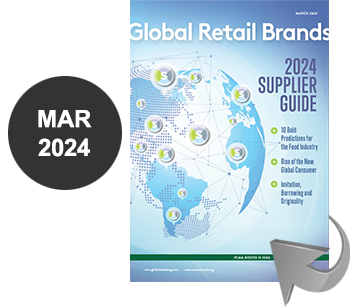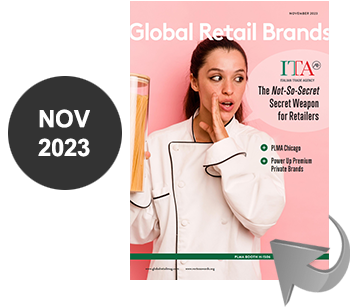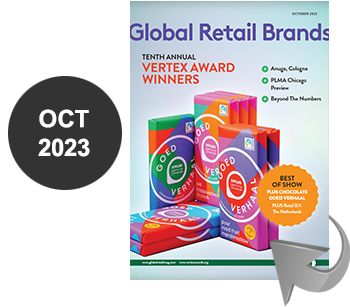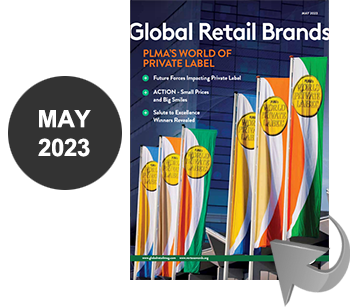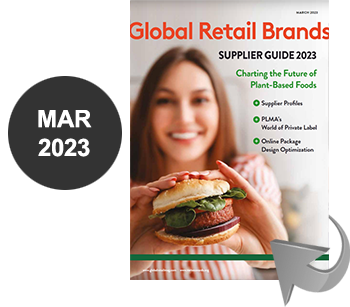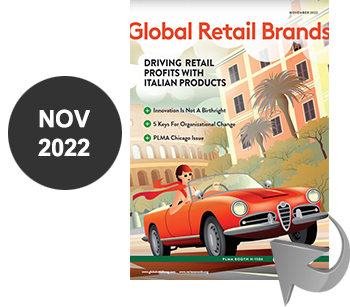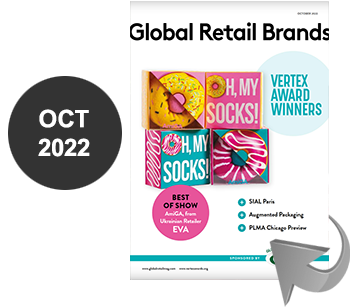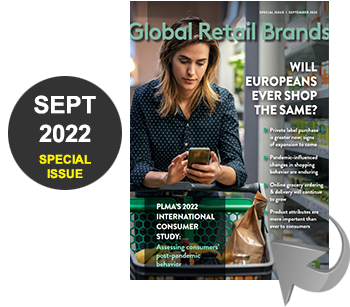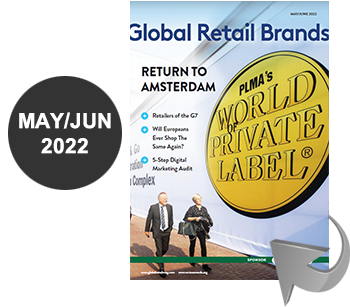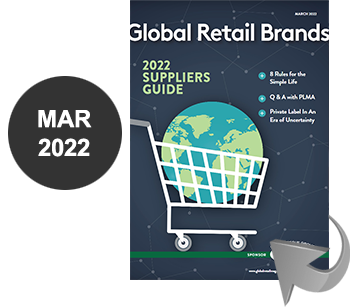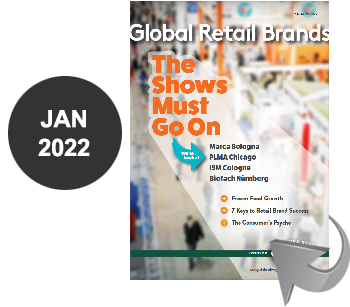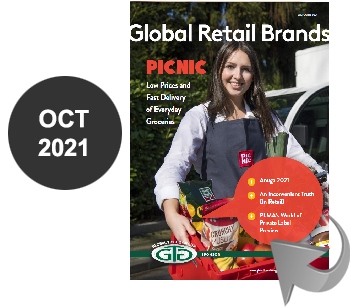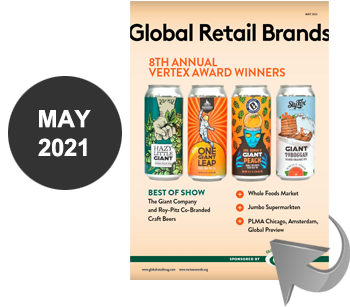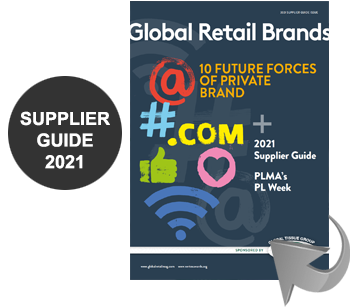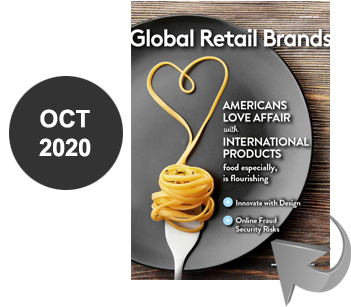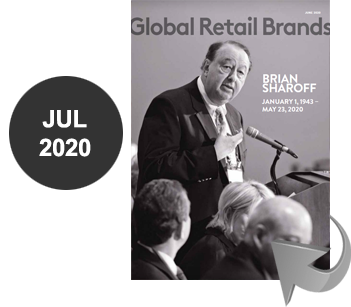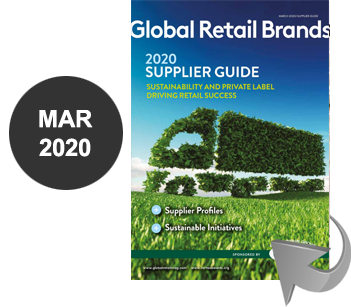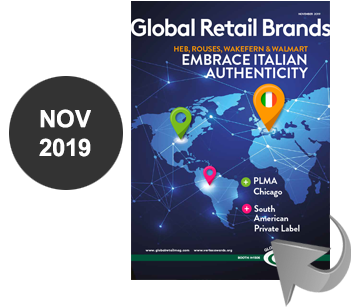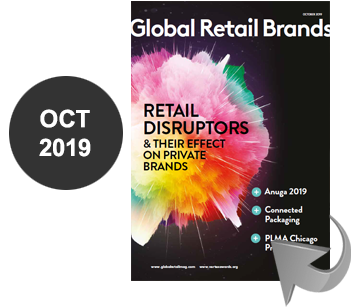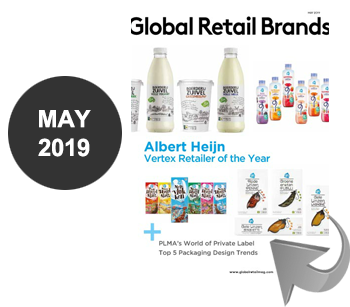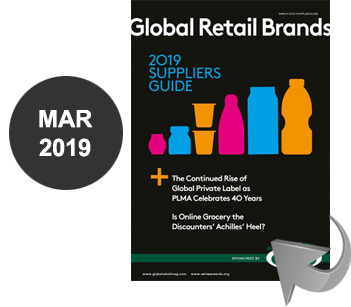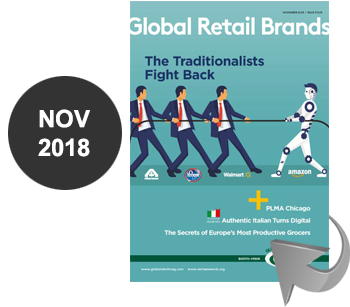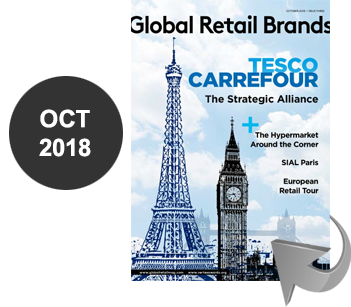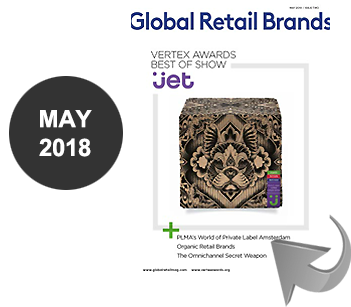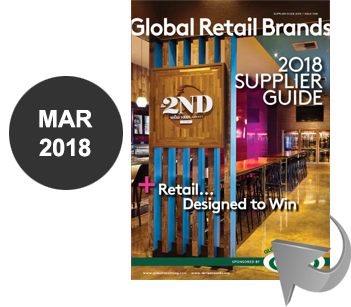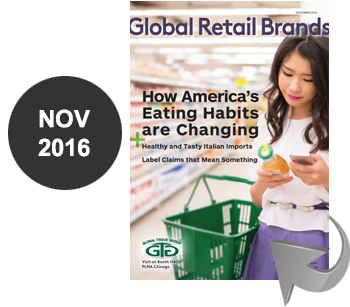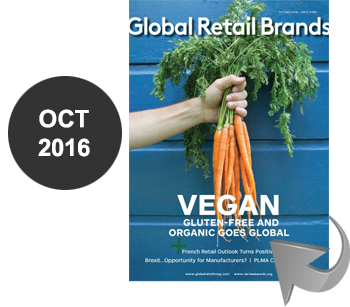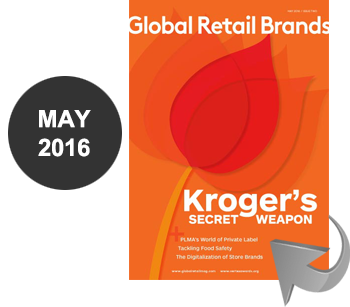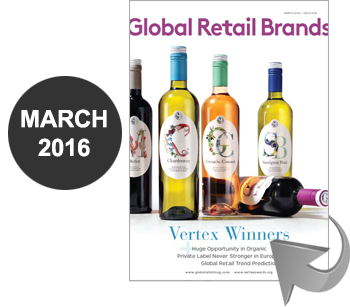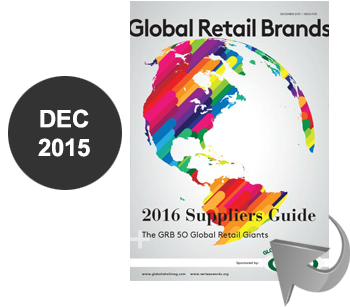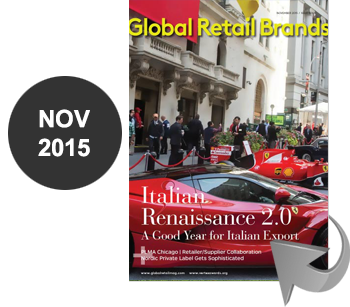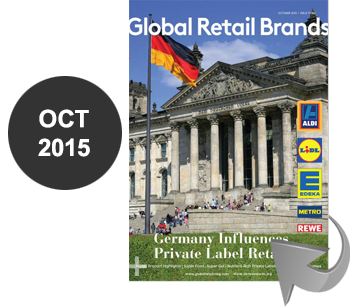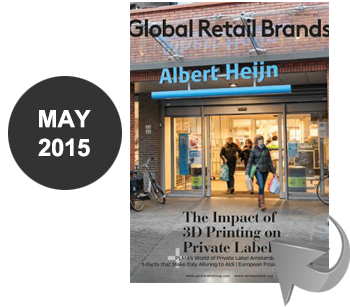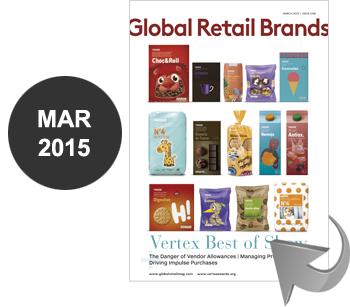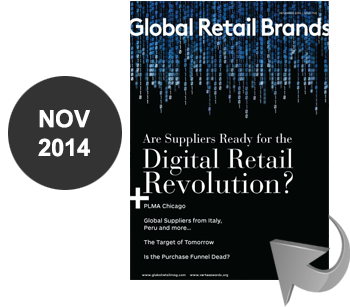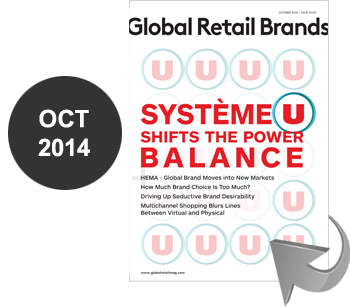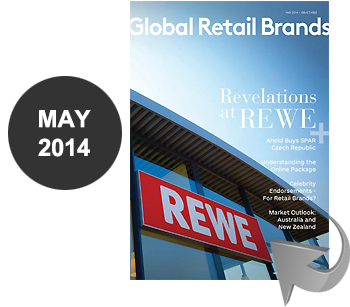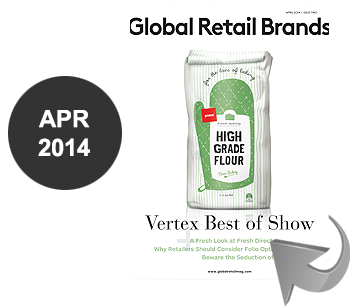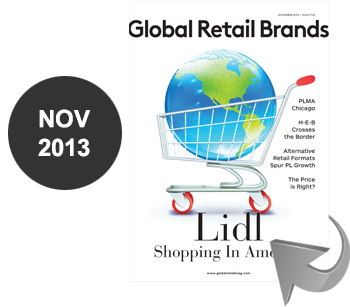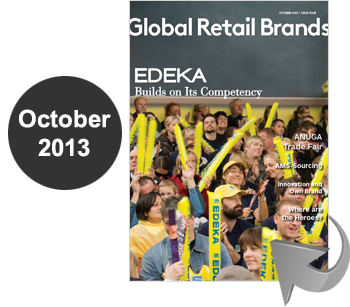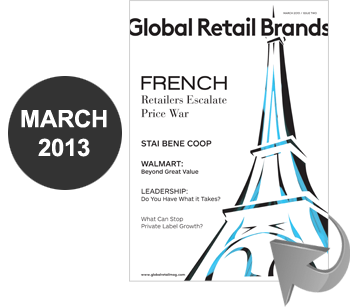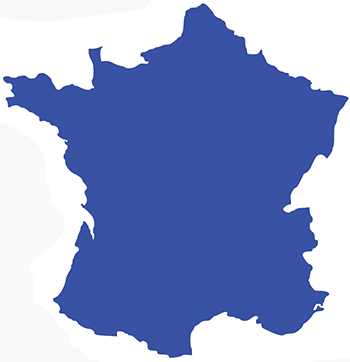
Nearly six years since the economic crisis that saw private label gaining share across Europe private label continues to evolve in step with a fragile consumer eager for value and quality.
European retailers leveraged their ‘three-tier approach’ in 2013, upping the price of their own brands, and narrowing the price gap between national brands and private label products. Re-launching premium ranges and reducing promotions contributed to the reduction in price gap.
According to a recent report from market analysts IRI, retailers pulled in an extra EUR0.5 billion Euros – a 0.4% rise – by increasing their private label prices.
“Shoppers want quality as well as value and so as the perceived quality increases – with more premium ranges being launched – they are more confident to buy private label and pay more for it,” explains Tim Eales, Director of Strategic Insight at IRI.
Mixed reports for Europe >>
Set against this backdrop, overall European sales of frozen food remained stable, despite the horsemeat scandal that shook sales in the UK.
Germany proved itself as a particularly bright spot. The largest country for frozen food saw good growth for both value and unit sales, claims the IRI report. Indeed, the frozen food category in Germany is entirely driven by private label and grew by 9% in value.
In the UK, the home of private label, frozen food was one of only two categories – the other being chilled and fresh food – to see an increase in private label unit share.
But the same picture was not observed all over Europe, value sales fell in Italy, Greece and Spain.
France, almost €1 out of €2 on frozen >>
Despite price inflation, private label is losing market share more quickly than compared to other FMGC sectors. Nonetheless, it is still a dominant force in frozen foods, representing almost €1 out of €2 spent, a higher figure than other markets, suggests the report.
Even with such buoyancy, private label’s share of the frozen food market in France is down, suggesting retailers could be more focused in this area. Plus, private label faces tough competition from specialist chains for frozen food, such as private-equity owned Picard. Also, frozen food is a ‘complicated segment to manage effectively’, due to the low margins available versus fresh foods.
In terms of quality, IRI findings suggest the quality perception gap between private label overall – not specifically frozen foods – and national brands in France ‘has widened considerably during the past three years.’ Consumers are not convinced that the quality of private label matches national brand alternatives. Indeed, private label frozen food is lagging behind national brands, with declines – just under 1% – in year on year sales.
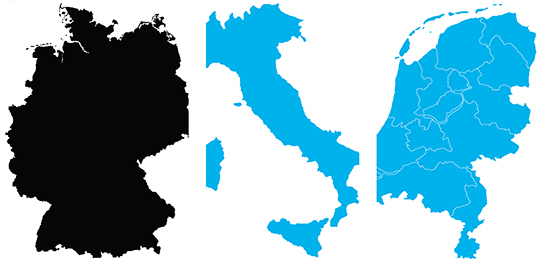
Spain, sales suffer >>
The IRI Pulse report on frozen food for the third quarter of 2013 warns operators in Spain that although private label holds an enviable 57.7% share of frozen food sales, the fall in sales of private label are actually sharper than for branded alternatives. Compounding this, private label has seen value sales grow in all categories, except frozen food and personal care. Frozen food saw a -2.7% decline in value sales.
Germany, the hot spot >>
A contrasting picture, in Germany private label frozen foods are enjoying value and volume sales growth compared to sales of branded products that are declining. Indeed, growth in frozen food is driven entirely by private label. Frozen food marked a +3.5% change in value sales year on year, compared to a small fall for national brands.
UK, frozen potatoes flourish >>
The home to private label, the UK, might expect to see the pound conscious consumer increasingly turning to private label. But according to IRI, at a total private label level, this is not the case.
However, some categories, such as frozen potatoes, ‘are benefitting from inflation and declining promotional support of branded solutions’.
It’s worth noting that the relative price of private label versus national brands has fallen in the two categories where the price differential is closest, frozen food and chilled. Frozen food, along with chilled, is one of just two sectors where private label demonstrated the strongest performance during the past year.
IRI reports minimal year on year value sales growth in most categories, just under 1% for frozen food.
Italy, growth in value sales >>
Value sales growth in frozen food crept up by just under 1%, while national brands saw a 0.9% fall. Private label is priced an average of 22% lower than equivalent national brands across the nine macro-categories. The private label price index versus national brands saw frozen food rising by 1.0 percentage points.
Greece, frozen reflects macro picture >>
Set against a challenging economic context, all macro-categories, except confectionery and household, saw value sales fall in the past year. Year on year, frozen food value sales fell by 4.1%.
Private label is priced an average 35% below equivalent national brands in Greece, a difference that narrowed by 1.3 points in the last year. In terms of year on year change expressed as percentage point change in private label price index versus national brands, frozen food saw a 4.1 point increase in price index.
The Netherlands, value sales increase >>
Along with alcoholic drinks and ambient food, the frozen food category saw one of the largest growths in value in the past year, with the category posting 1.3% growth in value sales.
‘The Wabel Frozen Summit – in Paris from March 12 to 13, 2014 – will connect buyers from major European retailers and foodservice groups with suppliers of frozen food products to establish new sourcing business, in face-to-face private meetings.
Much more than an opportunity to solve sourcing needs, the Wabel Frozen Summit – (Ready-meals; Meat; Pizza; Fruits and vegetables; Potato-based products; Ice-creams and Desserts) – will also feature the latest industry thinking during a two day conference, handson Retailer workshops, plus the Wabel Awards ceremony at the Gala dinner. Visit www.wabel.com for further details or email [email protected].

